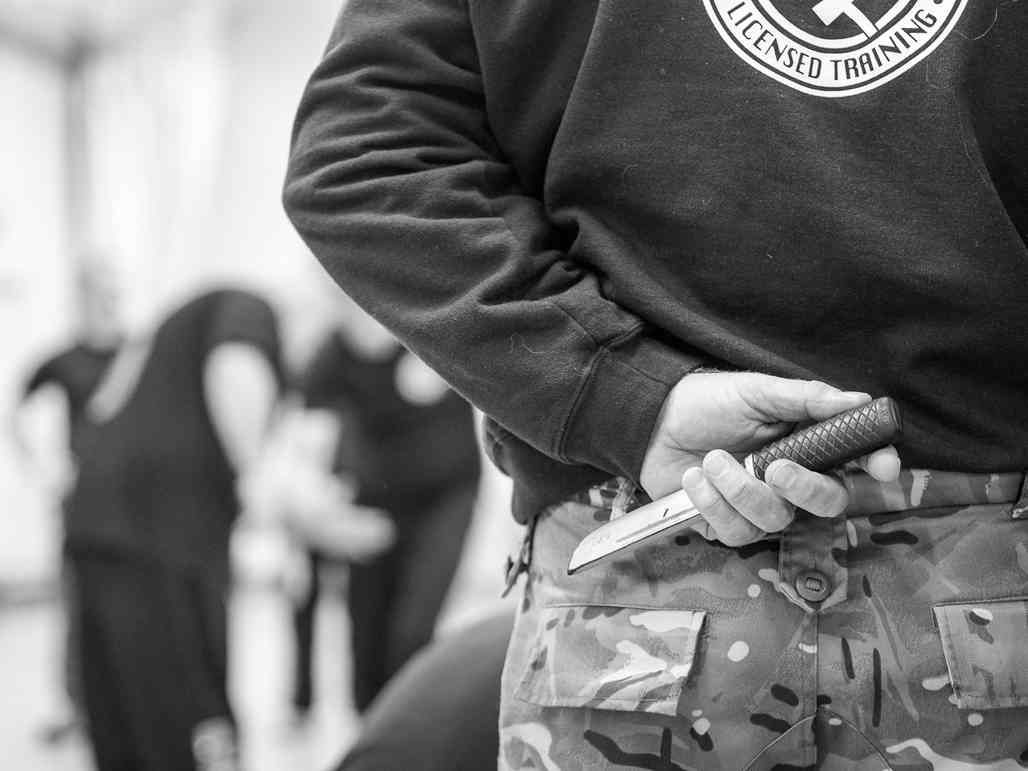Dont just sit there, Book a Trial Lesson Today
Mental Strength in Combat – It’s a State of Mind
Doctor Michael Asken, defines mental toughness in his book: Warrior Mindset: Mental Toughness Skills for a Nation’s Peacekeepers as follows:
Mental toughness is possessing, understanding, and being able to utilize a set of psychological skills that allow the effective, and even maximal execution or adaptation, and persistence of decision-making and physical and tactical skills learned in training and by experience.
Much has been written on the effects stress has on performance and the importance of mental strength or toughness in a conflict situation. Stress reduces performance and can have a devastating impact – this is a scientific fact. Lt Col Grossman in his book: On Combat: The Psychology and Physiology of Deadly Conflict in War and in Peace commented:
98% of the human population is affected by a “Interpersonal Human Phobia.” This phobia is interpersonal human aggression – when another human being causes our fear, pain & suffering it shatters, destroys & devastates us because it is personal.
It has been shown that as well as a devastating psychological impact, interpersonal violence can also have significant physiological effects including loss of fine motor skills, tunnel vision, poor judgment and loss of hearing.
These impairments during violent encounters can have a serious negative impact on our ability to protect ourselves if one doesn’t have the psychological skills to manage them. Therefore, an awareness of this natural reaction to violence and an ability to manage or cope with the impacts of extreme stress is key to survival, as Dr Michael Asken observed in his book Warrior Mindset: Mental Toughness Skills for a Nation’s Peacekeepers:
… a key ingredient in any survival situation is the mental attitude of the individual involved.
This mental attitude or mental toughness is often referred to as a state of mind. It has a very important role to play in surviving a violent encounter because it equips the warrior with the psychological skills required to endure physical and mental hardship and as such, is a key differentiator in combat.
Elite military units have been aware of this fact and the force multiplying effect it creates for years. The Royal Marines have even captured this idea in their “It’s a State of Mind” Recruitment Campaign:
Your mind is a weapon, your mind is a blanket against cold, a shield against fear. It can beat heat, overcome hunger, eradicate pain. You can train your body, turn soft flesh into hard muscle, but if you want to know what it takes to earn the green beret start with what’s under it.
Science has also shown that with the correct form of training, that interpersonal violence, with its high levels of stress and psychological and physiological effects, can be managed effectively to ensure that a positive outcome is achievable.
The key is to understand the effects stress can have on performance in a crisis and to try to inoculate the combatant against these effects, so that they can defend themselves adequately well should the time come to do so.
This applies equally well to the Kravist as it does to the combatant soldier, policeman, first responder, combative sportsman or martial artist.
In Part 2 we will look at the building blocks of mental strength and how to develop these attributes.



 © Copyright British Krav Maga 2018. All rights reserved and enforced.
© Copyright British Krav Maga 2018. All rights reserved and enforced.


 © Copyright British Krav Maga 2018. All rights reserved and enforced.
© Copyright British Krav Maga 2018. All rights reserved and enforced. © Copyright British Krav Maga 2018. All rights reserved and enforced.
© Copyright British Krav Maga 2018. All rights reserved and enforced.